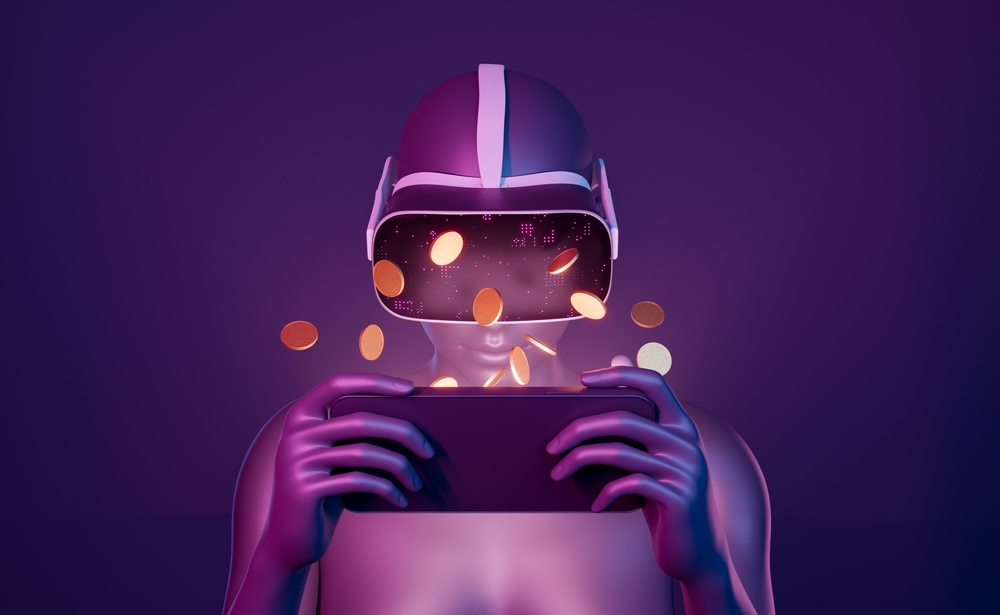Blockchain game development has undoubtedly the potential to create massive improvement in gaming for both players and developers, especially in the areas of decentralization and transparency.
Before we dive into blockchain game development, we must first of all understand what a blockchain is, and the possibilities that lie within blockchain technology in simple terms.
What is Blockchain?
I will spare you the history of the blockchain and the complexity of cryptography and blockchain technology and give you a simplified meaning of blockchain using very common illustrations of commerce.
Let’s run along!
The biggest challenge in commerce is Trust, and it’s completely unreasonable to ask any buyer to trust a product just because the seller claims it’s trustworthy without any documented proof or record.
That problem to an extent was solved with the introduction of a ledger, having all transactions written on a ledger had a backdrop of sincerity as a ledger may not just be adjusted but can be erased and even replaced with false transactions that may not have taken place, giving room for fraud and increasing the trust gap in commerce.
To remedy this issue of sincerity/trust, individuals had to bank on licensed and governed intermediaries such as the banks to keep accurate records of every transaction.
So, the bank became a middleman for those looking for trust and those looking to be trusted.
These intermediaries are centralized and every transaction carried out by everyone in their community is not public.
It also has a drawback of ;
- Access to funds during certain hours of the day or week.
- High transaction charges.
- The frustration of failed transactions due to daily limits.
- Hacks, insufficient funds or technical issues and in some cases,
- We still have reports of tampered transactions.
Now, to remedy this issue, blockchain came into existence.
Blockchain is simply an immutable distributed ledger.
It is immutable because transactions cannot be manipulated and every member of the community has access to the ledger as every transaction that has been made on the block can be seen by the public.
Also, funds can be transferred very fast at any time of the day with little charges on transactions.
We can refer to a Blockchain as an immutable digital ledger chained together where people can transact with a hundred percent trust, its security removes every form of doubt and trust gap.
This technology functions as a distributed ledger that records and protects digital data through the use of cryptography.
This technology is often applied to networks of digital currencies (cryptocurrencies), but its decentralized and secure nature also makes it a powerful tool for many other industries.
Blockchain Use cases
With the possibilities in blockchain-based solutions, improved learning of how this innovative technology can be applied to different scenarios is very important.
This technology handles the need for trust and expensive security by providing improved efficiency.
More so, the decentralized network can be configured as a transparent database, visible to everyone.
In this sense, blockchain technology gives the ability to create a distributed yet unified record offering opportunities for improving performance and security in many industries and organizations (e.g., charity, royalty payments, games, etc.).
Charity
Many charitable organizations around the world are faced with issue of poor resource management, lack of operational transparency, and ineffective governance.
Also, many persons dislike donating to charity organizations because of trust issues and the frequent fraudulent happenings in such organisations.
Fortunately, blockchain technology fixes these issues as it makes it easy to monitor and track funds as well as secure funds from hackers, thus improving trust.
Royalty payments
Due to the high level of digital privacy and unfair relationships with third parties, video game creators, content creators, musicians, and some artists are denied their royalties. Sometimes they even end up underpaid.
The use of blockchain technology eliminates those challenges as data can be tracked and made public to everyone it concerns.
Blockchain Game development

Traditional gaming as we know is centralized as the database is owned by a single company, and players don’t have real ownership of their accounts and items.
Also, centralized game servers are faced with many limitations and vulnerabilities, which may include:
- Malfunctioning of gaming server due to technical issues.
- Game shut down.
- Manipulation of the game.
- System infiltration by hackers.
In other words, the power is in the hands of the game companies, but blockchain game development has been able to mitigate these issues.
The Positive Impact of blockchain game development
As a distributed database, blockchain technology can store all in-game assets, tokens, and characters.
The assets in the blockchain gaming space are limited.
For instance, a game developer may decide to create only sixty-eight golden swords which will be owned by any player who passes the required task to posses one, thereby increasing scarcity of in-game assets and increasing their value as they are saved as non-fungible tokens.
Blockchain game development has solved the following gaming problems:
Real Ownership
Blockchain technology allows participants to have ownership of in-game assets, as anyone on the blockchain can see for example how many golden swords available in a game and who possess them. Blockchain gaming makes you an owner and not just a mere participant.
Unlimited gaming
Many traditional in-game assets are useless ones a player stops playing or when the game companies for some reason decide to shut down.
But blockchain games are linked to the blockchain and the game continues as long as the blockchain is still running and even when the project is abandoned, other groups can decide to take on the project.
Gaming multi-universe
Blockchain games allow a game developer to check for existing items in the immutable ledger to determine if the item should be added to their game, making it easy for participants to use their in-game assets from one game on another game or even sell them.
Examples of Blockchain games
When compared to the traditional gaming industry, the blockchain gaming space is quite new and relatively small.
Still yet, there are hundreds of DApps(decentralized applications) and games built on top of blockchain networks.
Most decentralized applications and gaming platforms run on top of the Ethereum blockchain (such as Enjin and Loom).
However, there is quite a number of projects under development on other networks such as EOS, TRON, ONT, NEO, VeChain, and IOST.
A few examples of blockchain-based games include;
- Decentraland (virtual reality platform).
- Cryptokitties.
- Gods Unchained.
- My Crypto Heroes.
- Cheeze Wizards.
- Crypto Space Commander.
- Mythereum.
- Axie Infinity.
- HyperSnakes, etc.
Conclusion
Blockchain game development has come to change the entire gaming world for good and to give participants more power and access to not just buy and play like in traditional games, but to buy a game and also send, purchase, and interact with their in-game assets in form of non-fungible tokens.
